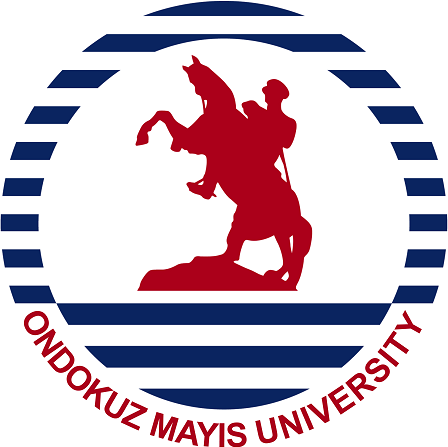Establishment
OMU Faculty of Health Sciences Department of Physiotherapy and Rehabilitation was established with the letter dated 24.09.2018 and numbered 72570 received from the Presidency of the Council of Higher Education.
Earned Degree
Graduates who successfully complete the program receive a "Bachelor's Degree" and the title of "Physiotherapist" in the field of "Physiotherapy and Rehabilitation.
Level of Degree
Bachelor’s Degree
Admission and Registration Conditions
The Department of Physiotherapy and Rehabilitation accepts students into its bachelor's degree program based on the results of the OSYM with the scores of the Quantitative (OSYM-SAY) points, central placement system, and the Foreign Student Exam (YOS) for international students. The duration of the program is four years, and the language of instruction is Turkish.
Recognition of Previous Learning (Formal, In-formal, Non-formal)
Students from institutions recognized by the Council of Higher Education can be accepted. Graduates of Health Services Vocational School who have successfully passed the vertical transfer exam can also be accepted to obtain a bachelor's degree. The courses to be taken by these students are determined by considering the courses they have previously taken and passed at the vocational school. Recognition of previous non-formal and formal education in Turkish higher education institutions is still in its early stages. Ondokuz Mayıs University, and consequently, the department, is not an exception to this situation. However, English language proficiency is recognized through exams held every semester, and students can be exempt from these courses if they achieve a passing grade.
Qualification Conditions and Rules
As stated in the Ondokuz Mayıs University Regulations on Education and Examinations, students must pass all course units, including practical applications, to be successful.
Program Profile
This program is structured to introduce and teach students fundamental concepts in the field of physical therapy and rehabilitation, provide current education and teaching practices, and produce individuals who respect human rights, prioritize lifelong learning, and are competent in scientific and professional fields. The aim is for students to be able to analyze the condition of healthy/sick individuals, take responsibility, act independently, be research-oriented, be skilled, encourage teamwork, adhere to ethical values, be open to change and innovation in their professional lives, and take on leadership roles, as well as successfully complete scientific projects.
Employment Profiles of Graduates (with examples)
1.They can work in various medical fields within Inpatient Treatment Centers. (Universities, Public and Private Healthcare Institutions, etc.), including Orthopedics and Traumatology, Neurology/Pediatric Neurology, Physical Medicine and Rehabilitation, Neurosurgery, General Surgery, Cardiology, Cardiovascular Surgery, Pulmonology/Thoracic Surgery, Pediatrics, Urology, Oncology, Obstetrics and Gynecology, Otorhinolaryngology, Intensive Care Units, Plastic Surgery/Burn Units, Rheumatology, Emergency Service Units. 2.Rehabilitation Centers/Prosthetics-Orthotics Units 3.Primary Healthcare Services 4.Industrial Sectors 5.Schools 6.Sports Clubs 7.Nursing Homes 8.Vocational Rehabilitation Centers 9.Thermal Springs Centers 10.Private Education and Rehabilitation Centers 11.Graduates who want to work in the academic field can pursue an academic career at universities. 12.Graduates of Physiotherapy and Rehabilitation can pursue postgraduate education in their own fields or related fields, provided they achieve a passing grade in the ALES exam and demonstrate proficiency in the English language.
Transition to Higher Degree Programs
Graduates who successfully complete their undergraduate education can enroll in postgraduate programs in their own or related fields, provided they obtain a valid ALES score and demonstrate English language proficiency.
Examinations, Measurement, and Evaluation
In general, 60% of in-term assessments (midterms, assignments, projects, etc.) and 40% of end-term assessments (finals, assignments, projects, etc.) are calculated for evaluation.
Graduation Requirements
To graduate from the 4-year undergraduate program, students must complete the courses with a total of 240 ECTS credits and maintain a general grade average of 2.00/4.00.
Mode of Study (Full-Time, E-Learning)
0
Address and Contact Information (Program Chair, ECTS/DS Coordinator)
Head of the Department: Assoc. Prof. Nilay COMUK BALCI
Ondokuz Mayıs University, Faculty of Health Sciences, Department of Physiotherapy and Rehabilitation Kurupelit, Samsun
Phone: 0 362 312 19 19 - 4134
E-mail: nilay.comukbalci@omu.edu.tr
Department Facilities
The department has one associate professor, two faculty members, and three lecturers. Education is carried out using the physical facilities of the Faculty of Health Sciences.
| Program Outputs |
|---|
| 1.The individual knows the basic medical sciences concepts and principles related to physiotherapy and rehabilitation; analyzes clinical problems through reasoning and problem-solving processes, and performs the necessary measurement, evaluation, diagnosis, and planning with a biopsychosocial perspective and effective communication skills; guides, protocols, instructions, and clinical decision-making methods and, if necessary, revises them at specific intervals; sets short and long-term goals and informs the patient and their family. |
| 2.Using advanced and up-to-date knowledge and skills, the individual applies the physiotherapy and rehabilitation program systematically and safely in accordance with ethical principles, patient confidentiality, professional autonomy, and regulations, gaining awareness of the legal consequences of all physiotherapy and rehabilitation practices. |
| 3.Using their accumulated knowledge, the individual independently conducts professional and academic work, working with an interdisciplinary approach and collaboration within the framework of team understanding while preserving their physiotherapist identity and awareness, taking responsibility. |
| 4.They contribute to the development of national and international health policies suitable for the changing and diversifying needs of society in the field of physiotherapy and rehabilitation, in the protection of public health, in guiding individuals for a healthy life, and in managing the processes of improving the safety of service recipients and employees within the scope of occupational safety; they produce solutions based on information and evidence for problems. |
| 5.They plan, conduct, report, archive, present, and develop scientific research related to physiotherapy and rehabilitation and define research and related statistical concepts within the framework of ethical rules and participate in all stages. |
| 6.They embrace personal development, information literacy, and lifelong learning; they contribute to quality improvement, field and non-field education, and professional promotion programs, representing their profession at the national and international levels. |
